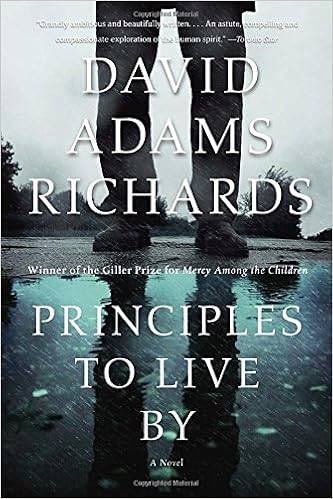
2 Stars
This is another of those
Oprah Book Club selections that lacks substance.
Samantha Morrow is a
middle-aged upper class woman whose husband David leaves her after 20 years of
marriage. A stay-at-home mother (for
11-year-old Travis), she has made little effort to have a life outside her
family; she seems to have only one friend.
For financial reasons, she decides she needs to take in lodgers – a
78-year-old woman, a depressed university student, and a gay hair stylist. These three people, and a neighbour who
befriends her, help her create a new life.
Sam was my problem with the
book. She is a very unlikeable character
so it is difficult to have any sympathy for her. She has a good life despite the fact that her
marriage has fallen apart; even money does not seem to be a real issue. Certainly, her marriage breakdown does not
have the catastrophic consequences many women experience. Furthermore, she is so self-absorbed, so
self-centred, and so full of self-pity.
All she does is whine. Her friend
tells her, “’I don’t feel sorry for a victim who keeps choosing to be a
victim. That’s what you’re doing. You’re not even trying. You’re just sinking deeper into feeling sorry
for yourself.’” This is a perfect
description of her and, as a result, she comes across as just pathetic.
Sam is also such a shallow
person. She tells Travis about the
divorce (after stupidly telling David she wanted to do it) but, instead of
worrying about the impact of the news on her son, she frets about halitosis
because her breath smells “of garlic for three days after she eats it,” about
gray hair “popping out all over my head”, about cellulite, and about
snoring. She constantly comments on
other people’s appearances.
The book is full of
stereotypes. It is a black woman who
begs on the street (though she has a “lovely face"); Sam’s employer at a
laundromat is a Chinese man with “tea-coloured teeth” who speaks in broken
English; it is a black man, whose “eyes are bloodshot,” who comes into the
laundromat with a blaring boom box (though he is “handsome”); and the third
lodger is a flamboyantly gay hair dresser who describes himself as “’a walking
cliché’” and when faced with danger says, “’We
need a man in the house!’”
The theme is anything but
complex. Samantha has to learn to
appreciate the simple things. And that
message is repeated several times by several people: Samantha thinks, “I was thinking that
gratitude is too much absent in our lives now, and we need it back, even if it
only takes the form of acknowledging the blue of a bowl against the red of
cranberries. . . . This is the time in my life to do other things. . . . All
right: the red against the blue, the
sound of the birds in the morning. The
sugar smell in bakeries. The smoothness
of fabric moving under my hands into the teeth of the sewing machine. The movement of the ocean, the break of light
every morning, every morning.” And King
says, “’I want to be appreciative of all that’s here, in a normal life. I want to keep finding out about the things I
see around me.’” And Sam’s mother says,
“’I think most young people today are so focused on tomorrow they forget all
about today.’”
The plot is predictable. It is obvious, from the first introduction of
a character, that he will be Sam’s next romantic interest. And that man is just too good to be true, a
total contrast to the man who Sam says “almost” date-raped her. The ending is just so optimistic and
sentimental, exactly what the reader expects.
I wish I had not gone to this
Open House.





![Everyone Brave Is Forgiven by [Cleave, Chris]](https://images-na.ssl-images-amazon.com/images/I/51lsbIl14oL.jpg)

